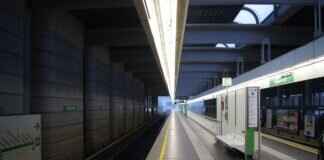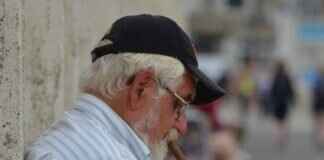This article explores various travel options from Kolkata to West Bengal, detailing transportation methods, tips, and insights to help travelers make informed decisions for a smooth journey.
1. Overview of Travel Options
Traveling from Kolkata to West Bengal offers several options, including trains, buses, private vehicles, and flights. Each method has its unique advantages and disadvantages depending on the traveler’s needs.
2. Traveling by Train
Trains are a popular choice for their affordability and comfort. The extensive railway network connects Kolkata with various districts in West Bengal, making it a convenient option for travelers.
2.1 Major Train Routes
Understanding the major train routes from Kolkata to different parts of West Bengal can help travelers choose the best service for their needs, ensuring a timely arrival at their destination.
2.1.1 How to Book Train Tickets
Booking train tickets online or at railway stations is straightforward. This section will guide you through the process, including tips for securing reservations during peak seasons.
2.1.2 Train Timings and Frequency
Train schedules vary based on routes and time of day. Knowing the timings and frequency of trains can assist travelers in planning their trips more effectively.
2.2 Advantages of Train Travel
Traveling by train offers numerous benefits, including scenic views, spacious seating, and the opportunity to meet locals. This section highlights why trains might be the preferred choice for many.
3. Traveling by Bus
Buses provide an economical and flexible option for traveling within West Bengal. Various private and government-operated services cater to different budgets and preferences.
3.1 Types of Bus Services
Understanding the different types of bus services, including luxury and sleeper buses, can help travelers choose the right option based on their comfort and budget needs.
3.2 Booking Bus Tickets
Booking bus tickets can be done online or directly at bus terminals. This section will provide insights into the best practices for securing your travel plans.
4. Private Vehicle Travel
Traveling by private vehicle offers the ultimate flexibility and comfort. This section discusses the advantages of self-driving or hiring a car for your journey across West Bengal.
4.1 Rental Car Options
Renting a car can enhance your travel experience, allowing you to explore off-the-beaten-path destinations. This section outlines the best rental services available in Kolkata.
4.2 Road Conditions and Safety
Understanding the road conditions and safety measures while traveling by car can ensure a smooth and enjoyable journey throughout West Bengal.
5. Air Travel Considerations
While air travel is less common for short distances within West Bengal, it can be an option for reaching far-off destinations. This section explores the feasibility and logistics of flying.
5.1 Airports in West Bengal
This section provides an overview of airports in West Bengal, including major hubs and regional airports, to help travelers plan their air travel effectively.
5.2 Cost and Time Efficiency
Evaluating the cost versus time efficiency of flying compared to other travel methods can help travelers make informed choices based on their priorities.
6. Tips for a Smooth Journey
Practical travel tips, including packing essentials, local customs, and safety precautions, can enhance your travel experience and ensure a hassle-free journey across West Bengal.
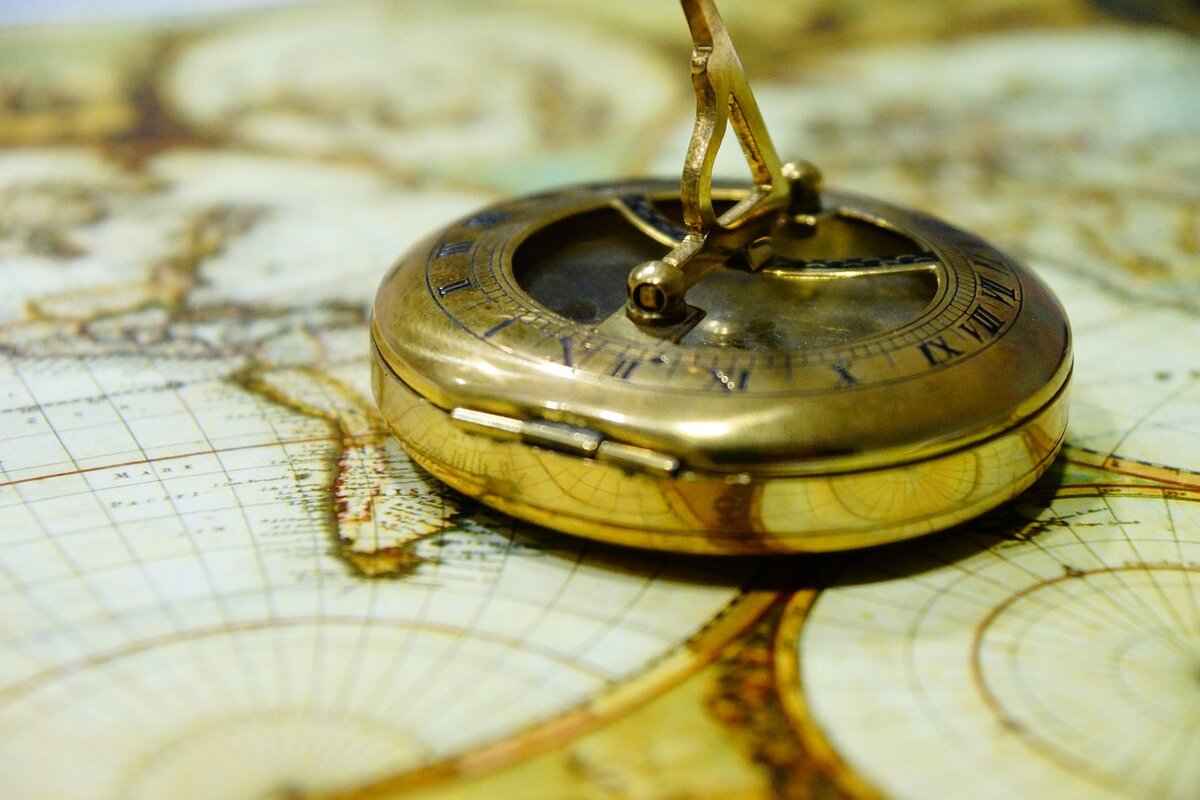
1. Overview of Travel Options
Traveling from Kolkata to West Bengal provides a variety of options for both locals and tourists alike. Whether you prefer the comfort of a train, the affordability of a bus, the flexibility of a private vehicle, or the speed of a flight, each mode of transportation has its distinct advantages and challenges. Understanding these options can significantly enhance your travel experience.
When considering traveling from Kolkata to West Bengal, travelers can choose from several methods:
- Trains: Renowned for their comfort and scenic routes, trains are a favored choice among many.
- Buses: Buses are an economical option, with numerous services catering to various budgets.
- Private Vehicles: Offering unparalleled flexibility, traveling by car allows you to explore at your own pace.
- Flights: While less common for short distances, flights can be considered for reaching distant locations quickly.
Each method has its unique advantages and disadvantages depending on the traveler’s needs:
- Trains: Cost-effective and comfortable, but may require advance booking during peak seasons.
- Buses: Affordable and frequent, but can be less comfortable than trains.
- Private Vehicles: Offers flexibility and convenience, but requires knowledge of local roads and conditions.
- Flights: Fast and efficient for long distances, but generally more expensive and less practical for short trips.
Ultimately, the best travel option depends on your specific needs, budget, and schedule. Consider your priorities—whether it’s cost, comfort, or convenience—to make an informed decision.
By understanding these travel options, you can ensure a smooth and enjoyable journey from Kolkata to West Bengal.
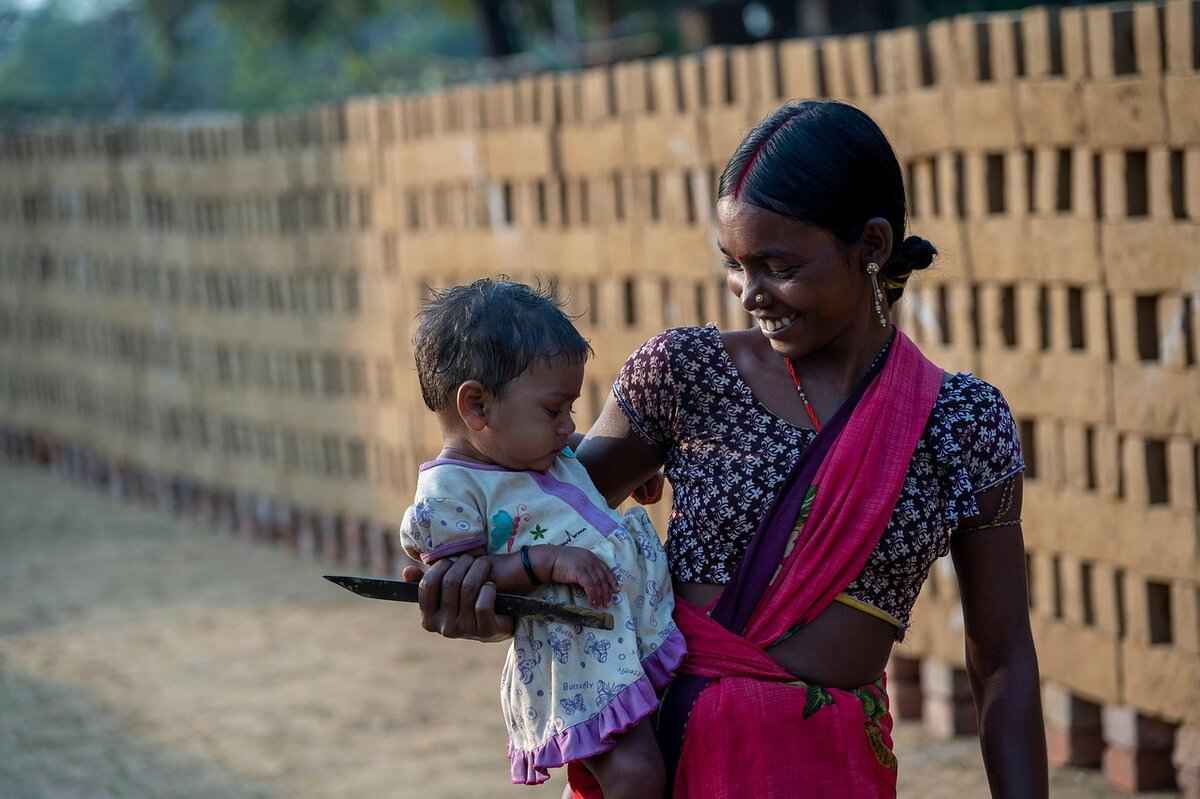
2. Traveling by Train
Traveling by Train is a favored method for many individuals looking to journey from Kolkata to various destinations within West Bengal. The affordability and comfort that trains provide make them a popular choice among travelers. The extensive railway network not only connects Kolkata with several districts but also offers a seamless travel experience.
The railway system is well-developed, ensuring that trains run frequently throughout the day, catering to the diverse needs of passengers. This convenience allows travelers to choose timings that best fit their schedules, whether for business or leisure purposes.
Understanding the major train routes is essential for planning your journey effectively. Popular routes from Kolkata include:
- Kolkata to Howrah
- Kolkata to Durgapur
- Kolkata to Siliguri
- Kolkata to Asansol
Each of these routes offers distinct experiences, with the opportunity to witness the beautiful landscapes of West Bengal.
Booking train tickets has never been easier. You can reserve your seat online through various platforms or purchase tickets directly at railway stations. During peak seasons, it is advisable to book in advance to secure your preferred seats. Utilize apps or websites that offer real-time availability and pricing to make the process smoother.
Train schedules can vary significantly based on the route and time of day. Typically, trains run at regular intervals, but checking the latest timetable is crucial for effective trip planning. Popular trains often have multiple services throughout the day, ensuring that you can find a suitable option.
Aside from being economical, train travel in West Bengal provides a unique experience. Passengers can enjoy:
- Scenic views of the countryside
- Spacious seating compared to other modes of transport
- The chance to interact with locals and experience the culture
These factors contribute to a more enjoyable and enriching travel experience, making trains a preferred choice for many.
2.1 Major Train Routes
Understanding the major train routes from Kolkata to various regions in West Bengal is essential for travelers seeking the most suitable train service. With an extensive railway network, Kolkata serves as a hub connecting you to numerous destinations, ensuring a timely arrival at your chosen location.
West Bengal is rich in culture and diversity, and traveling by train allows you to experience its scenic beauty and vibrant local life. Below is a detailed overview of some of the major train routes that you can consider:
| Destination | Train Name | Frequency | Duration |
|---|---|---|---|
| Howrah to Durgapur | Shatabdi Express | Daily | 2 hours |
| Kolkata to Siliguri | Darjeeling Mail | Daily | 12 hours |
| Kolkata to Asansol | Howrah-Asansol Express | Multiple Daily | 3 hours |
| Kolkata to Malda | Malda Town Express | Daily | 8 hours |
| Kolkata to Bardhaman | Bardhaman Local | Frequent | 1.5 hours |
When choosing a train, consider the duration and frequency of service to ensure your travel aligns with your schedule. For instance, if you are heading to Durgapur, the Shatabdi Express is an excellent choice due to its speed and comfort. On the other hand, for a scenic journey to Siliguri, the Darjeeling Mail offers a unique experience.
In addition to the routes mentioned above, it’s advisable to check the train timings regularly, as they can change based on the season or operational requirements. Using online platforms or mobile apps can help you stay updated and make reservations conveniently.
By understanding these major train routes, you can make informed decisions that enhance your travel experience across West Bengal.
2.1.1 How to Book Train Tickets
Booking train tickets is an essential part of planning your journey from Kolkata to various destinations in West Bengal. Whether you choose to book online or at the railway station, the process is designed to be user-friendly and efficient. Below, we outline the steps and provide valuable tips to ensure a smooth booking experience, especially during peak travel seasons.
1. Booking Online
- Visit the Official Website: Start by visiting the Indian Railways website or a trusted travel portal. These platforms provide a comprehensive list of available trains, timings, and fares.
- Create an Account: If you’re a first-time user, consider creating an account. This will save your details for future bookings and speed up the process.
- Search for Trains: Enter your departure and arrival stations along with the date of travel. The system will display a list of available trains for your chosen route.
- Select Your Train: Review the options based on timings and class of travel. Choose a train that fits your schedule and budget.
- Make Payment: Proceed to payment. You can use various methods such as credit/debit cards, net banking, or e-wallets.
- Receive Confirmation: After successful payment, you will receive a confirmation email and SMS with your ticket details.
2. Booking at Railway Stations
- Visit the Ticket Counter: Go to the nearest railway station and locate the ticket counter. Be prepared for possible queues, especially during busy hours.
- Fill Out the Form: Complete a reservation form with your travel details. Ensure accuracy to avoid issues.
- Payment: Pay for your ticket at the counter. Keep the receipt safe, as it will be required for boarding.
3. Tips for Securing Reservations During Peak Seasons
- Book Early: To avoid last-minute hassles, try to book your tickets as early as possible.
- Be Flexible: If your travel dates are flexible, consider alternate dates to find better availability.
- Use Tatkal Scheme: For urgent travel, utilize the Tatkal booking system, which allows you to book tickets at a premium rate.
By following these steps and tips, you can ensure a hassle-free process when booking train tickets for your journey across West Bengal.
2.1.2 Train Timings and Frequency
Train Timings and Frequency are crucial factors that can significantly influence your travel experience when journeying from Kolkata to West Bengal. With a well-established railway network, the region offers a variety of train services catering to different destinations. Understanding the timings and frequency of these trains can help travelers plan their trips efficiently, ensuring they arrive at their destinations on time.
Trains typically operate on a set schedule, which can vary based on the route and the time of day. For instance, peak travel times often see increased frequency, while off-peak hours may have fewer trains running. It’s advisable for travelers to check the current schedules, which can usually be found on the official Indian Railways website or through various travel apps.
| Route | First Train | Last Train | Frequency |
|---|---|---|---|
| Kolkata to Howrah | 5:00 AM | 11:00 PM | Every 30 minutes |
| Kolkata to Siliguri | 6:00 AM | 10:30 PM | Every 2 hours |
| Kolkata to Durgapur | 5:30 AM | 10:00 PM | Hourly |
When planning your journey, consider using online platforms to book your tickets in advance, especially during peak seasons or holidays. This not only secures your seat but also allows you to choose from a variety of classes, ensuring a comfortable ride. Additionally, staying updated on any schedule changes or delays is essential for a smooth travel experience.
In conclusion, being aware of train timings and frequency can greatly enhance your travel experience from Kolkata to various destinations in West Bengal. By planning ahead and utilizing available resources, travelers can enjoy a hassle-free journey.
2.2 Advantages of Train Travel
Traveling by train presents a myriad of advantages that can significantly enhance the travel experience. This mode of transportation is not only economical but also offers a unique way to explore the landscapes of West Bengal. Here are some key benefits of choosing train travel:
- Scenic Views: One of the most captivating aspects of train travel is the opportunity to enjoy breathtaking views of the countryside. As the train glides through lush green fields, rivers, and quaint villages, passengers can immerse themselves in the natural beauty of West Bengal.
- Spacious Seating: Unlike cramped airplane seats or crowded buses, trains typically offer more spacious seating arrangements. This additional space allows travelers to relax, stretch out, and enjoy their journey in comfort.
- Opportunity to Meet Locals: Trains are a melting pot of cultures, where you can meet and interact with locals. Engaging in conversations with fellow passengers can lead to enriching experiences and insights into the region’s culture and traditions.
- Cost-Effective Travel: Train fares are generally more affordable compared to other forms of transportation. This makes it an ideal choice for budget-conscious travelers who still want to enjoy a comfortable journey.
- Convenience: With a vast railway network, trains connect major cities and towns across West Bengal. This extensive connectivity means travelers can easily reach their desired destinations without the hassle of navigating through traffic.
- Environmentally Friendly: Traveling by train is a more sustainable option compared to cars and planes, contributing to lower carbon emissions. Eco-conscious travelers can feel good about their choice.
In conclusion, the advantages of train travel make it a preferred choice for many. From the scenic vistas to the chance to interact with locals, trains offer a travel experience that is both enriching and enjoyable. Whether you are a solo traveler or with family, choosing to travel by train can turn your journey into a memorable adventure.
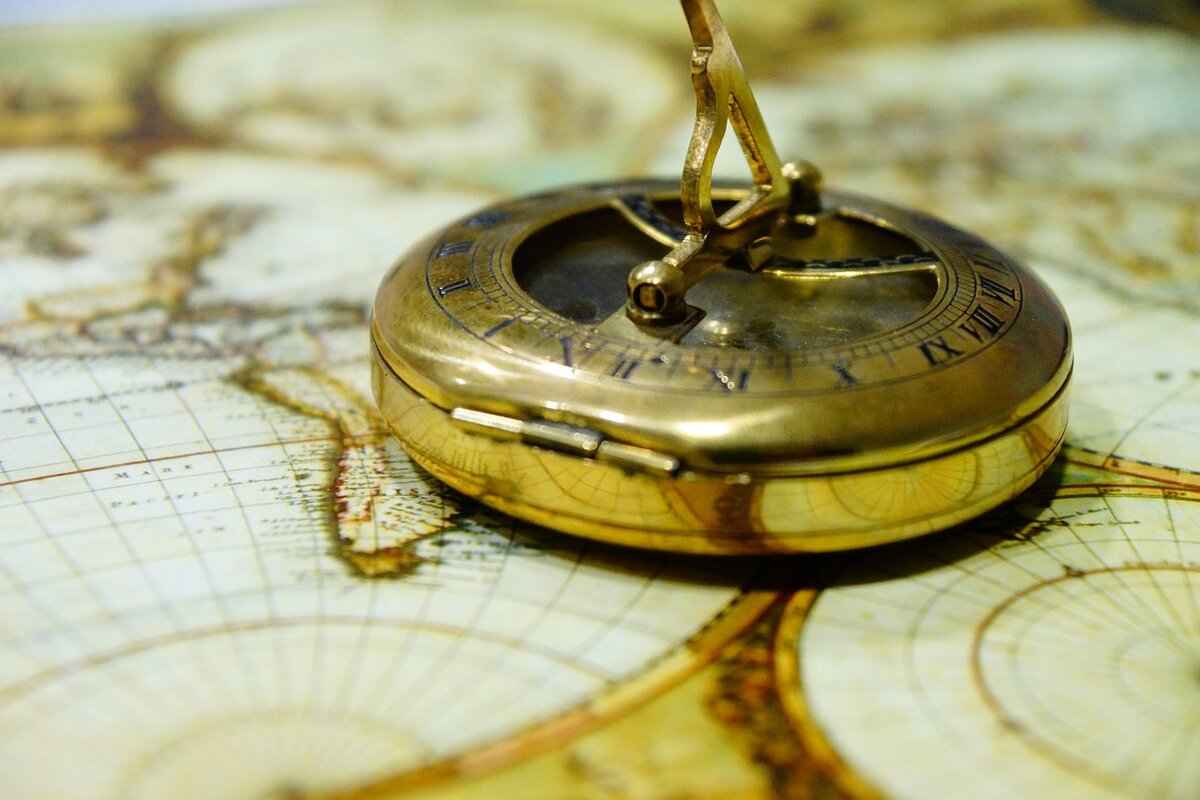
3. Traveling by Bus
Buses serve as a cost-effective and flexible mode of transportation for those looking to explore the diverse landscapes of West Bengal. They are an ideal choice for both locals and tourists, providing access to various regions at reasonable prices. The bus network is extensive, with options ranging from basic to luxury services, catering to different budgets and travel preferences.
3.1 Types of Bus Services
- Government Buses: Operated by the West Bengal Transport Corporation, these buses offer affordable fares and connect major cities and towns.
- Private Luxury Buses: For travelers seeking comfort, private operators provide luxury buses equipped with reclining seats, air conditioning, and onboard entertainment.
- Sleeper Buses: Ideal for long-distance travel, sleeper buses offer passengers the opportunity to rest during overnight journeys.
3.2 Booking Bus Tickets
Securing a bus ticket is a straightforward process. Tickets can be purchased:
- Online: Numerous websites and apps allow for easy booking, often providing discounts and seat selection options.
- At Bus Terminals: For those who prefer in-person transactions, tickets can be bought directly at bus stations.
3.3 Advantages of Traveling by Bus
Traveling by bus offers several benefits:
- Affordability: Bus fares are generally lower than train or flight tickets, making them accessible for all.
- Flexibility: With numerous routes and schedules, buses provide flexibility in travel plans.
- Scenic Views: Many bus routes pass through picturesque landscapes, offering travelers a unique perspective of West Bengal’s beauty.
In conclusion, buses are a versatile and economical choice for navigating West Bengal. Whether you’re heading to a bustling city or a serene village, the bus network ensures a reliable and enjoyable travel experience.
3.1 Types of Bus Services
Understanding the various types of bus services is essential for travelers looking to navigate the routes between Kolkata and West Bengal efficiently. With a range of options available, it’s important to choose a bus service that aligns with your comfort and budget needs.
Bus services can be categorized into several types, each offering unique features and amenities:
- Luxury Buses: These buses are designed for travelers who prioritize comfort and style. They often come equipped with reclining seats, air conditioning, onboard entertainment, and sometimes even complimentary snacks. Luxury buses are ideal for long-distance travel, providing a more enjoyable experience.
- Sleeper Buses: Perfect for overnight journeys, sleeper buses feature individual berths or sleeping pods, allowing passengers to rest comfortably during their travels. These buses often include amenities such as blankets and personal lighting, making them a popular choice for those traveling long distances.
- Standard Coaches: These are the most common type of bus service, offering basic seating and amenities. They are economical and suitable for short to medium distances, making them a popular choice for budget-conscious travelers.
- Minibuses: Ideal for smaller groups, minibuses provide a more intimate travel experience. They are often used for local trips or tours, offering flexibility in scheduling and routes.
- Shuttle Services: These services are usually operated by hotels or travel companies, providing transportation to and from specific locations, such as airports or tourist attractions. They are convenient for travelers who prefer direct routes without the hassle of public transport.
When selecting a bus service, consider factors such as travel time, cost, and available amenities. By doing so, you can ensure a travel experience that meets your expectations and enhances your journey through West Bengal.
3.2 Booking Bus Tickets
Booking bus tickets is an essential part of planning your journey, especially when traveling across regions like West Bengal. With the rise of digital technology, securing your travel plans has become more convenient than ever. This section will delve into the best practices for booking bus tickets, ensuring a hassle-free experience.
There are two primary methods for booking bus tickets: online and at bus terminals. Each method has its own set of advantages that cater to different traveler preferences.
- Online Booking: This method is increasingly popular due to its convenience. Travelers can book tickets from the comfort of their homes using various platforms. Here are some tips for a smooth online booking experience:
- Always compare prices across multiple platforms to find the best deal.
- Check for promotional offers or discounts that can make your journey more affordable.
- Read reviews of the bus services to ensure a comfortable ride.
- Keep your travel dates flexible if possible, as this can often lead to better pricing.
- Booking at Bus Terminals: For those who prefer a more traditional approach, purchasing tickets directly at bus terminals is a viable option. Here are some advantages:
- You can ask staff for information about schedules and routes.
- Immediate ticket availability for last-minute travelers.
- Opportunity to inspect the bus condition before boarding.
Regardless of the method you choose, it’s crucial to plan ahead. During peak travel seasons, buses can fill up quickly, so securing your tickets in advance will help avoid last-minute hassles. Always keep your identification and payment methods ready, whether booking online or at the terminal.
In conclusion, understanding the best practices for booking bus tickets can significantly enhance your travel experience. By utilizing both online and offline methods effectively, you can ensure a smooth and enjoyable journey throughout West Bengal.
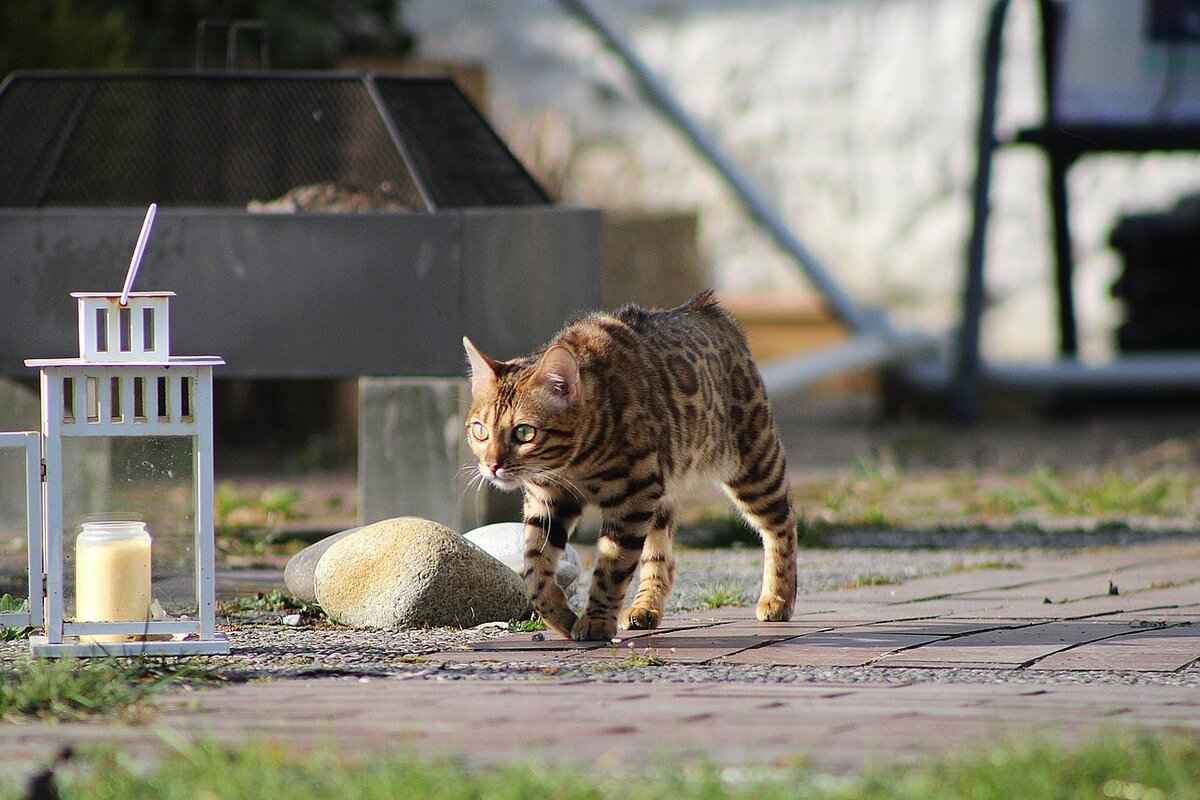
4. Private Vehicle Travel
Traveling by private vehicle offers the ultimate flexibility and comfort, especially when exploring the diverse landscapes of West Bengal. This method of travel allows you to set your own pace, choose your own routes, and make spontaneous stops along the way, enhancing the overall experience of your journey.
One of the primary advantages of self-driving or hiring a car is the freedom it provides. Unlike public transport, where schedules dictate your movements, a private vehicle allows you to explore hidden gems and scenic spots that may not be accessible otherwise. For instance, you can venture into the serene countryside of Santiniketan or the picturesque hills of Darjeeling without the constraints of time.
Additionally, traveling by car is often more comfortable for families or groups. You can pack more luggage, bring along snacks, and enjoy a personalized environment. This is particularly beneficial for long journeys, where comfort can significantly enhance the travel experience.
- Convenience: No need to adhere to public transport schedules.
- Comfort: Enjoy a private space with your companions.
- Flexibility: Change plans on the go and explore at your leisure.
- Cost-Effective: Especially for larger groups, sharing the cost of a rental can be economical.
When considering a trip across West Bengal, it is essential to evaluate rental car options. Many service providers in Kolkata offer a variety of vehicles to suit different needs and budgets. From compact cars for city driving to SUVs for rougher terrains, you will find an option that meets your requirements.
Moreover, understanding road conditions is crucial for a safe journey. While many highways are well-maintained, some rural roads may present challenges. Always check local travel advisories and plan your route accordingly to ensure a smooth experience.
In conclusion, opting for a private vehicle when traveling across West Bengal not only enhances your journey but also allows for a more immersive experience. The freedom to explore at your own pace, combined with the comfort of your own space, makes this travel option a preferred choice for many.
4.1 Rental Car Options
Renting a car in Kolkata can significantly enhance your travel experience, providing you with the freedom to explore off-the-beaten-path destinations that might be inaccessible by public transport. Whether you are planning a short trip or an extended journey, having a rental car allows you to travel at your own pace and visit places that interest you the most.
Here are some of the best rental services available in Kolkata:
| Rental Service | Price Range (per day) | Vehicle Types | Booking Options |
|---|---|---|---|
| Zoomcar | ₹800 – ₹3000 | Hatchbacks, Sedans, SUVs | Online & App |
| Savaari | ₹1500 – ₹5000 | Luxury Cars, Vans | Online |
| Drivezy | ₹900 – ₹2500 | Economy Cars, Bikes | Online & App |
| Ola Rentals | ₹1200 – ₹3500 | Compact, SUV | App |
When selecting a rental service, consider the following factors:
- Pricing: Compare daily rental rates and any additional fees.
- Vehicle Condition: Ensure the car is well-maintained and reliable.
- Insurance: Check if insurance is included in the rental agreement.
- Customer Reviews: Look for feedback from previous customers to gauge service quality.
Additionally, it’s crucial to familiarize yourself with local driving laws and road conditions. Safety should always be a priority, so make sure to have a GPS system or a navigation app handy to avoid getting lost.
In conclusion, renting a car in Kolkata not only provides convenience but also opens up a world of adventure. With the right rental service, you can explore the diverse landscapes and cultural treasures of West Bengal at your own leisure.
4.2 Road Conditions and Safety
Understanding road conditions and safety measures while traveling by car is crucial for ensuring a smooth and enjoyable journey throughout West Bengal. The diverse landscape and varying road conditions can greatly affect travel experiences. Therefore, it is essential to be well-informed and prepared.
West Bengal features a mix of urban roads, rural pathways, and highways. Here are some key points to consider:
- Road Quality: Major highways connecting Kolkata to other districts are generally well-maintained. However, rural roads may be less developed, so caution is advised.
- Traffic Conditions: Urban areas, especially Kolkata, can experience heavy traffic congestion. It’s advisable to travel during off-peak hours to avoid delays.
- Weather Conditions: Monsoon season can lead to waterlogging and poor visibility. Always check the weather forecast before embarking on your journey.
- Local Driving Laws: Familiarize yourself with the local traffic regulations to avoid fines and ensure safety.
To enhance safety during your travels, consider the following measures:
- Vehicle Maintenance: Ensure your vehicle is in good condition. Regular checks on brakes, tires, and lights can prevent unexpected breakdowns.
- Emergency Kit: Carry a well-stocked emergency kit, including first-aid supplies, water, and basic tools.
- Navigation Tools: Use GPS or reliable maps to stay informed about your route and any potential roadblocks.
In conclusion, understanding the road conditions and implementing necessary safety measures can significantly enhance your travel experience in West Bengal. By being prepared and informed, you can enjoy the scenic beauty and rich culture that the region has to offer.

5. Air Travel Considerations
When planning a trip within West Bengal, air travel may not be the first option that comes to mind, especially for short distances. However, it becomes a viable choice for reaching more remote destinations or for travelers with tight schedules. This section delves into the feasibility and logistics of flying within the region.
5.1 Airports in West Bengal
West Bengal is served by several airports, with Netaji Subhas Chandra Bose International Airport in Kolkata being the primary hub. Other regional airports, such as those in Bagdogra and Birsa Munda, facilitate air travel to more distant areas. Understanding the locations and services of these airports can help travelers plan their journeys more effectively.
| Airport Name | Location | Services |
|---|---|---|
| Netaji Subhas Chandra Bose International Airport | Kolkata | International and Domestic Flights |
| Bagdogra Airport | Bagdogra | Domestic Flights |
| Birsa Munda Airport | Ranchi | Domestic Flights |
5.2 Cost and Time Efficiency
While air travel can be more expensive than trains or buses, it often saves significant time, especially for long distances. For instance, a flight from Kolkata to Durgapur might take less than an hour, compared to several hours by road. Evaluating the cost versus time efficiency is crucial for travelers to make informed decisions based on their priorities.
5.3 Booking Flights
Booking flights can be done easily through various online platforms. It is advisable to compare prices and check for any available discounts or offers. Additionally, booking in advance can help secure better rates, particularly during peak travel seasons.
Conclusion
In summary, while air travel may not be the most common choice for short distances within West Bengal, it presents a practical option for reaching far-off destinations quickly. Travelers should consider the convenience, time savings, and overall travel experience when deciding whether to fly.
5.1 Airports in West Bengal
Airports in West Bengal play a crucial role in connecting this vibrant state to the rest of India and beyond. With a mix of major international hubs and regional airports, travelers have various options for air travel, ensuring convenient access to numerous destinations.
West Bengal is home to several airports, with the most significant being Netaji Subhas Chandra Bose International Airport (CCU) in Kolkata. This airport serves as the primary gateway for international and domestic flights, accommodating millions of passengers annually. Its modern facilities and extensive flight connections make it a vital hub for travelers.
| Airport Name | Location | Type | Key Features |
|---|---|---|---|
| Netaji Subhas Chandra Bose International Airport | Kolkata | International | Major hub with extensive domestic and international flights |
| Bagdogra Airport | Bagdogra | Domestic | Gateway to North Bengal and the Himalayas |
| Birsa Munda Airport | Ranchi | Domestic | Connecting Jharkhand and West Bengal |
| Malda Airport | Malda | Domestic | Regional connectivity for North Bengal |
In addition to these major airports, West Bengal also boasts several smaller regional airports, which facilitate air travel to less accessible areas. These airports cater primarily to domestic flights, enhancing connectivity for local travelers and tourists alike.
For those planning to travel by air, it’s essential to consider factors such as flight availability, ticket prices, and transportation options to and from the airport. Utilizing online platforms for booking flights and checking schedules can significantly ease the planning process.
In conclusion, whether you are traveling for business, leisure, or adventure, understanding the airport landscape in West Bengal will help you make informed decisions and ensure a smooth travel experience. With its diverse range of airports, West Bengal is well-equipped to meet the needs of all travelers.
5.2 Cost and Time Efficiency
When planning a trip from Kolkata to various destinations in West Bengal, understanding the cost versus time efficiency of different travel methods is crucial. Each mode of transportation offers unique benefits that cater to diverse traveler priorities, such as budget constraints or time limitations.
Comparing Costs
- Air Travel: Flying is often the most expensive option, especially when considering ticket prices, airport fees, and additional costs such as transportation to and from the airport. However, for long-distance travel, it can save significant time.
- Train Travel: Trains offer a more economical choice, with ticket prices varying based on class and distance. They provide a comfortable travel experience while being budget-friendly.
- Bus Travel: Buses are generally the cheapest option, with numerous services available. They are ideal for travelers looking to save money, though travel times can be longer compared to trains and flights.
- Private Vehicles: While the cost of fuel and tolls can add up, traveling by car allows for flexibility and the possibility of exploring off-the-beaten-path locations.
Time Efficiency
- Flying: The fastest method for long distances, flights can significantly reduce travel time, making them suitable for urgent trips.
- Trains: With frequent services and relatively quick travel times, trains are a popular choice for those who want to balance speed and comfort.
- Buses: Although buses can take longer due to stops and traffic, they remain a viable option for budget-conscious travelers.
- Private Vehicles: Driving offers the advantage of setting your own pace, but traffic conditions can affect travel time.
Ultimately, the choice between flying, taking the train, traveling by bus, or using a private vehicle depends on individual priorities. By evaluating the cost and time efficiency of each option, travelers can make informed decisions that align with their needs and preferences.
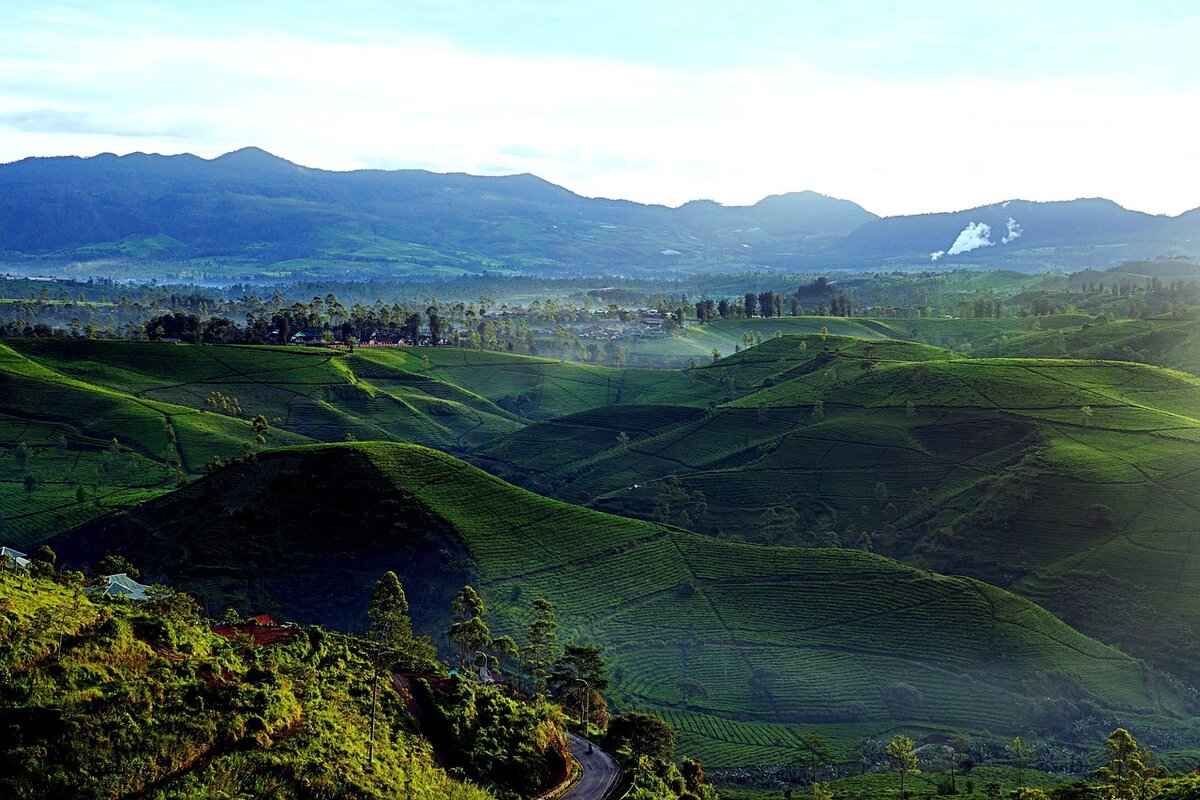
6. Tips for a Smooth Journey
Traveling can be an exciting adventure, but it can also come with its challenges. To ensure a smooth journey across West Bengal, it’s essential to be well-prepared. Here are some practical travel tips that cover packing essentials, local customs, and safety precautions.
- Packing Essentials:
- Clothing: Consider the weather and pack breathable fabrics, especially during the summer months. Layering is advisable for cooler evenings.
- Footwear: Comfortable walking shoes are a must, as you’ll likely explore various attractions on foot.
- Health Kit: Carry a basic health kit with medications, hand sanitizer, and any personal items you may need.
- Travel Documents: Keep copies of your ID, travel tickets, and accommodation details easily accessible.
- Understanding Local Customs:
- Respect Local Traditions: West Bengal has a rich cultural heritage. Familiarize yourself with local customs, such as greeting with a ‘Namaste’ or respecting religious practices.
- Language Tips: While Bengali is the primary language, knowing a few basic phrases can enhance your interactions with locals.
- Safety Precautions:
- Stay Aware: Remain vigilant in crowded places and keep your belongings secure to avoid theft.
- Local Emergency Numbers: Familiarize yourself with local emergency contacts, including police and medical services.
- Travel Insurance: Consider purchasing travel insurance to cover unexpected incidents during your trip.
By following these tips, you can enhance your travel experience in West Bengal, allowing you to focus on enjoying the sights and sounds of this vibrant region.
Frequently Asked Questions
- What is the best mode of transportation from Kolkata to West Bengal?
The best mode really depends on your preferences! Trains are popular for their comfort and affordability, while buses offer flexibility. If you value convenience, a private vehicle might be the way to go. For longer distances, consider flying.
- How do I book train tickets for my journey?
Booking train tickets is super easy! You can do it online through various platforms or directly at railway stations. Just remember to book in advance, especially during peak travel seasons, to secure your seat!
- Are there any tips for traveling by bus?
Absolutely! When traveling by bus, check the different types of services available, like luxury or sleeper buses, to match your comfort level. Booking online can save you time, and always arrive early to avoid last-minute rushes!
- What should I know about renting a car in Kolkata?
Renting a car gives you the freedom to explore at your own pace! Look for reputable rental services, and make sure to check the road conditions before heading out. Familiarize yourself with local driving laws for a smooth journey.
- Is flying a good option for short distances in West Bengal?
While flying can be an option, it’s usually less common for short distances. However, it might be worth considering if you’re traveling to a far-off destination. Just weigh the costs and time against other methods!









